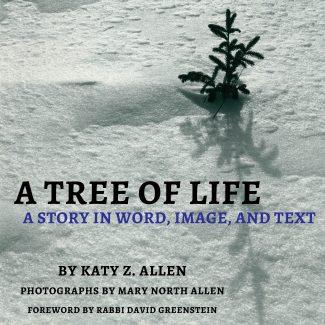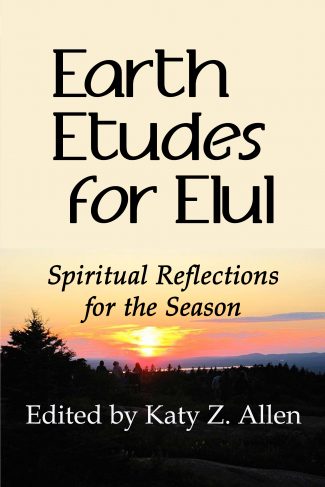Showing all 2 results

A Tree of Life: A Story in Word, Image and Text is a meditation on our universal journey through trauma toward healing. A tool for coping, for learning, and for growing during the challenging times we face in our lives.
A Tree of Life: A Story in Word, Image and Text is “a meditation on our universal journey through trauma toward healing.” A series of about 60 double-page spreads unfolds a story from innocence to despair to understanding through a combination of poetic moments, quotes from Jewish tradition, and black-and-white photographs of trees. The book provides a tender yet powerful experience as a “tool for coping, for learning, and for growing” during the challenging times we face in our lives. For the reader, the journey is personal as well as universal as you engage visually, through ancient and modern words, and multi-dimensionally through the integration of all three media.
You can also purchase the Ebook on Amazon by clicking here.

Elul is a time for reflection, for turning and re-turning to G!d and to our best selves in preparation for the Days of Awe. These poems and essays connect us in some way to our beloved planet Earth. Written by rabbis, environmentalists, gardeners, poets, writers, and other spiritual leaders.
The month of Elul is a time for reflection, a time for t’shuvah, of turning and re-turning to G!d and to our best selves, in preparation for the Days of Awe. It is time for heshbon hanefesh, examining our hearts and souls. Elul is the time for us to begin to make atonement for the things we wish we had or hadn’t done, and to renew ourselves, to do all we can to get ourselves to change. To help you on this journey, you will find in this volume a series of reflections for the month of Elul, divrei Earth—teachings that connect Earth and Torah. Use this volume to help you expand your own reflections about t’shuvah: read a few etudes a day or even select by theme. Themes include climate change, community and covenant, cycles, nature, gardening, personal behavior, rituals, and turning.
These reflections, meditations filled with Jewish wisdom, are written by rabbis, hazzans, environmentalists, gardeners, activists, educators, storytellers, poets, scientists and other spiritual leaders, reflecting many points of view and ways of looking at the world and the process of t’shuvah. The author list includes: